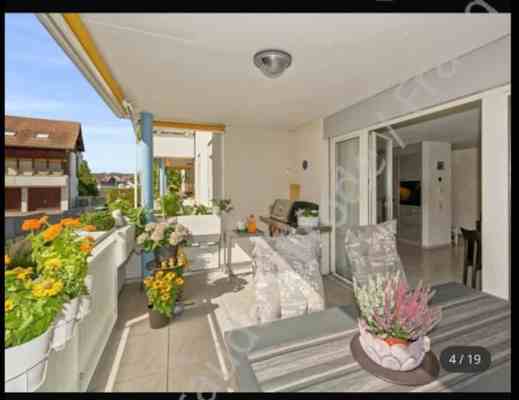Finding a place to live in Switzerland is increasingly difficult. Scammers have noticed and are cashing in on the desperation experienced by some seeking a place to live, reported the National Cyber Security Centre (NCSC), a federal government agency. A scam ad on a property listing website for a four-and-a-half room apartment in the canton of Zurich for only CHF 1100 per month.Across much of Switzerland housing vacancy rates are less than 1%. In the cantons of Zug and Geneva rates are below 0.5% – see rates for 2024 here. This makes finding a place to live very difficult and highly competitive. Stiff competition for housing can lead to desperation, a sentiment that scammers like to take advantage of. This week the NCSC said it has been receiving an increasing number of reports of
Topics:
Investec considers the following as important: International, Property
This could be interesting, too:
Investec writes The Swiss houses that must be demolished
Investec writes Swiss rent cuts possible following fall in reference rate
Investec writes The rapidly fading economics of solar panels in Switzerland
Investec writes Federal parliament approves abolition of imputed rent
Finding a place to live in Switzerland is increasingly difficult. Scammers have noticed and are cashing in on the desperation experienced by some seeking a place to live, reported the National Cyber Security Centre (NCSC), a federal government agency.

Across much of Switzerland housing vacancy rates are less than 1%. In the cantons of Zug and Geneva rates are below 0.5% – see rates for 2024 here. This makes finding a place to live very difficult and highly competitive. Stiff competition for housing can lead to desperation, a sentiment that scammers like to take advantage of.
This week the NCSC said it has been receiving an increasing number of reports of attempted scams involving property listings. Affordable housing is in high demand, especially in large cities. Scammers take advantage of this and use a variety of tactics to try to get their hands on the money or personal details of people looking for an apartment, it said. In 2024, 270 cases of fake rental adverts were reported. So far in 2025, 32 cases have been reported.
These scams come is a variety of forms. The first is fake online adverts with pictures of flats they don’t own or that don’t exist, often with implausibly low rents. Another involves copying real listings with changes to the contact information. The objective is to extract money or steal identities. “Necessary” payments are often described as advance rental payments, viewing fees or fees to send keys. Scammers often pretend to be an apartment owner that is abroad. Payments therefore need to be sent to offshore bank accounts. Payments are sometimes also requested in cryptocurrency.
To avoid being scammed the NCSC recommends being wary of properties offered at well below market rent. This can be spotted by looking at similar places in the same area. Never pay anything in advance of viewing an apartment, even if you meet someone in person who claims to be the landlord, avoid payments in cash, giftcards or cryptocurrency, and read rental agreements carefully before signing. And don’t fill out overly long application forms requesting personal information, such as your social security number or bank details. These could be attempts to steal your identity.
Other telltale signs of scams include spelling mistakes, poor quality images and incomplete contact details in adverts.
Public land registry records can be used to check the actual owner of a property.
If you suspect you have been scammed, cut off contact immediately and ignore any emails. If you have lost money the NCSC recommends that you file a complaint with the cantonal police. You can find your nearest police station on the Suisse ePolice website (available in German, French and Italian). If you have sent the scammers a copy of your ID or passport, report the incident to your local ID and passport office.
More on this:
NCSC article (in French) – Take a 5 minute French test now
For more stories like this on Switzerland follow us on Facebook and Twitter.
